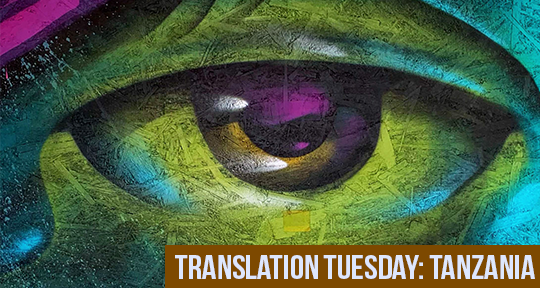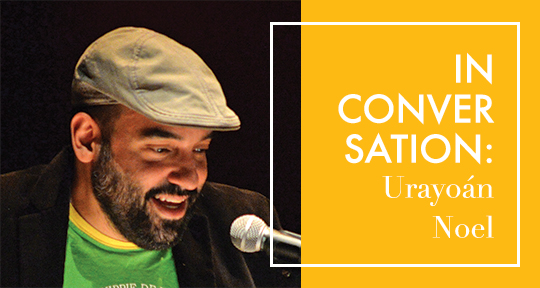In this very special edition of Translation Tuesdays, we are thrilled to bring to our readers three translations of hip-hop song lyrics translated from the Swahili by Richard Prins. From LWP Majitu to Juma Nature to Inspector Haroun, these three songs give us a peek into the music made by a generation of hip-hop artists working out of contemporary Tanzania. These lyrics, thoughtfully arranged in a visually refreshing use of space, find their own musicality and rhythm on the page in Prins’ translation as they tackle issues such as power and punishment through allegory and allusion. Be sure to check out the music videos in the links under each song as you feel your way into the counterpoints of page and performance.
Story! Story!
“Hadithi Hadithi” by Sloter ft. Juma Nature
Back in the old days,
in the village of Kwale
in the land of the Pare,
there came a lion,
a lion,
stomping an elephant
dead.
Come, deceit
Make it sweet
So listen: When the wild dogs saw that the lion was a killer,
They pulled a gun on the lion.
They pulled a gun on the lion.
The elephant rose from the dead.
Story! Story!
Come deceit
Make it sweet
Better hear it young
Or you’ll be lost
And now that the elephant was resurrected,
Giraffe
Lion
Gazelle
Hyena
Monkey
Cheetah
gathered around Lake Tanganyika
to witness the matinee
spectacle:
An elephant, trampled
to death.
And once the elephant was resurrected:
He pulled a gun on the lion.
The lion pulled a gun back.
Beat the elephant down.
Lion stomped him afresh
and knocked his lights out.
The elephant fell,
extinguished.
Story! Story!
Come deceit
Make it sweet
Better hear it young
Or you’ll be lost READ MORE…




